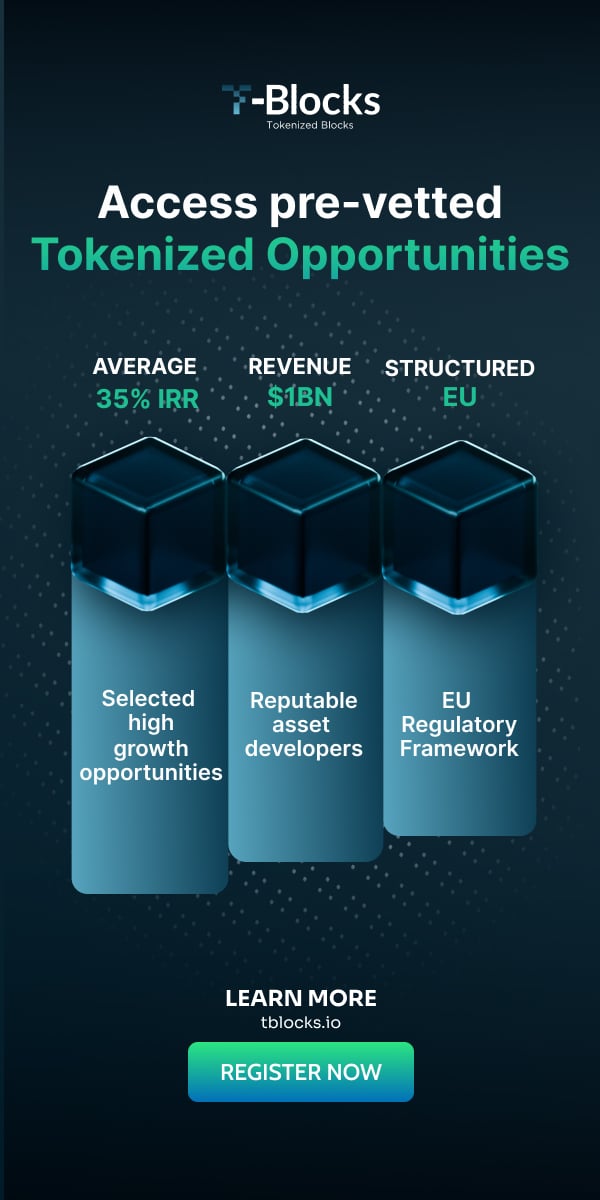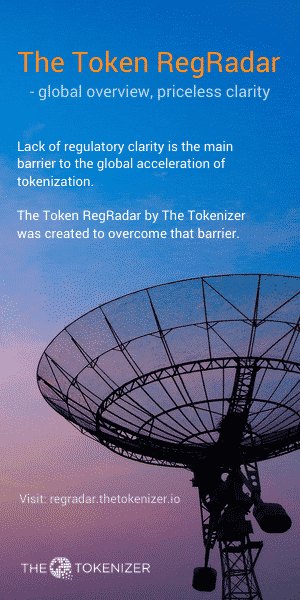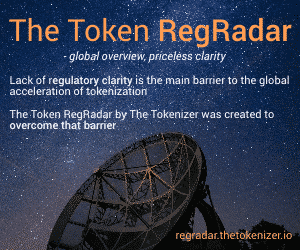Driving Engagement Through Tokenization: Gaming, Sports, and Entertainment
Guest post by Mario Casiraghi, CFO and CSO of Xfinite Global, a blockchain-powered global entertainment platform. Mario has been enmeshed in the blockchain sector since 2016, first as the founder of DandYlion, and as a partner at Blockchain Solution Partners. He previously worked in traditional finance markets, both at Bank of America Merrill Lynch and at RBS.

More than ever, people across the globe are exploring alternative ways to access financial products and services. Although financial technology (Fintech) companies started this transformative process, the rise of blockchain technology is driving the next wave of innovation. Decentralized infrastructure enables the use of self-executing smart contracts, which replace human intermediaries with hard-coded programming. The rapid adoption of decentralized finance (DeFi) applications in 2020 highlights the demand for solutions that improve accessibility, lower fees, and unlock more value and utility for everyday consumers.
It’s a paradigm shift with far-reaching implications, and momentum is building. The realm of decentralized finance is diverse; borrowing and lending, derivatives, exchanges, stablecoins, and non-fungible tokens (NFTs) are all on offer. As of December 2020, the value locked in DeFi protocols was US$14 billion, up more than US$13 billion from the same time in 2019. These figures highlight the impact of delivering solutions that improve liquidity and transparency — benefits that align with the tokenization process.
As a practice that spans more than one DeFi market segment, including NFTs and some commodity coins, tokenization has the potential to drive inclusion and engagement while generating revenue. Companies can also deploy NFTs for non-financial applications, including the tokenization of intellectual property; a process that creates a permanent, immutable record on the blockchain
The Tokenization Process and NFTs
Tokenization, made possible by the cryptographic mechanisms of blockchain, involves the generation of tokens that represent digital or real-world assets. When considering the potential impact of this practice, it’s essential to consider that almost anything can be tokenized: cars, real estate, securities, commodities, sports teams, in-game purchases, and even streaming or live entertainment. In 2020, forecasts indicate the global tokenization market was to reach a value of US$1.2 billion, increasing to US$4 billion by 2027.
Although security tokens (STOs) will account for the majority of this value, growing demand for unique, rare, and indivisible digital assets suggests NFTs will also play a crucial role. As collectibles, these tokens will achieve optimal utility in the gaming, sporting, and entertainment industries.
Tokenization: Gaming Industry
Whether mobile, PC, or console-based, traditional video games offer players one-time purchases that remain locked in a virtual environment. These in-game assets (i.e. special vehicles, characters, armor, and more) benefit game developers, but offer little utility to gamers.
However, through the use of blockchain-built NFTs, players can take ownership of a unique interoperable token. As a liquid asset, the flow of value is reversed, favoring players and generating a greater sense of engagement. NFTs can be exchanged in secondary markets or held and transferred between gaming environments. Game assets are also more secure given each generates a permanent blockchain record upon issuance. Today, games like Blockchain Cuties and Axie Infinity issue some of the newest adopted NFTs.
Tokenization: Sporting Industry
The global spectator sporting industry is forecast to shrink from US$144.2 billion to US$139.5 billion in 2020, rebounding to US$171.7 billion in 2023. As a deeply entrenched part of daily life, there are several opportunities to unlock value and drive engagement — especially in regions where one sport is prevalent.
- Player Likeness: Tokenization allows fans to invest in their favorite junior-level players to support them in making it to the big leagues. This level of engagement provides players with a source of revenue and helps develop more talent in a highly competitive industry. When a player is drafted and embarks on their career, the token value would subsequently track their performance metrics — essentially a real-world video game character.
- Football Club Fan Tokens: In June 2020, the Spanish champions Barcelona raised US$1.3 million in less than two hours by selling 600,000 “fan tokens.” These tokens will give each holder exclusive voting rights in club polls and make them eligible for future rewards. Across Europe and other countries where football is popular, the issuance of a fan token might also be a viable source of revenue. These unique assets include fans in decentralized decision-making and the life of big sport and non-sport brands.
- Cricket Club Investment: Cricket accounts for 85% of the sporting economy in India. As a result of this disproportionate level of popularity, tokenization would generate substantial revenue for individual clubs while driving fan engagement — emulating the token issuance seen from football clubs.
Tokenization: Entertainment Industry
There are many opportunities to leverage tokenization for the benefit of viewers and filmmakers in the entertainment industry.
- Incentivizing Engagement: Similar to Basic Attention Token (BAT), which rewards users for engaging with Brave web browser, TV viewers could also be rewarded using a native token on any network. By using a blockchain network, this digital currency might underpin an entire ecosystem of functionality — allowing holders to pay their monthly bills or rent movies using the platform token.
- The Movie Industry: India’s film industry (Bollywood) produces an average of 2,000 films every year in 20 languages; which makes it the world’s largest producer of films. As of 2020, the industry will generate US$3.7 billion, up from US $2.1 billion in 2016. In an industry dominated by large production studios, tokenization provides a way for small, indie filmmakers to fund their projects while empowering audiences to choose which projects they want to support.
Tokens of Tomorrow
The process of tokenization expands on the functionality of lesser-known DeFi protocols and introduces a decentralized network solution to a diverse range of industries. The resulting integrations incentivize consumers, while also generating spin-off benefits for the companies that choose to pursue native token issuance. As the digital asset class continues to evolve, tokenization will provide a crucial bridge between the familiarity of today’s centralized solutions, and the arrival of future decentralized iterations.
Photo by Aksh yadav on Unsplash
More Articles:
2021 prediction: Tokenization will skyrocket
Top 10 Security Token and Tokenization Articles of 2020





















